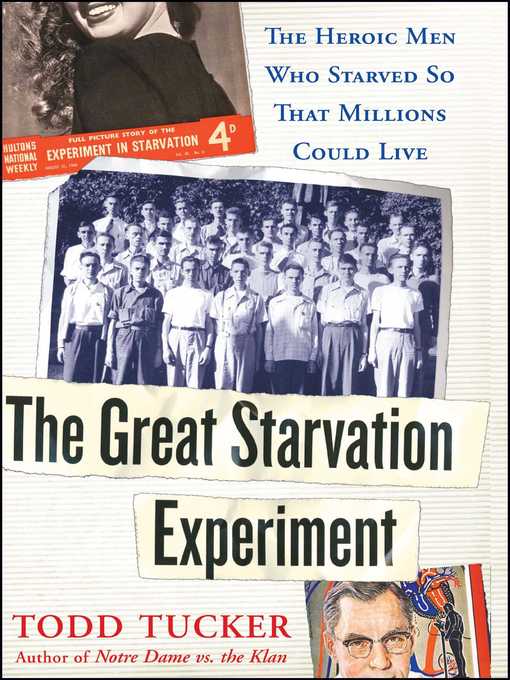
The Great Starvation Experiment
The Heroic Men Who Starved so That Millions Could Live
مردان قهرمان که شروع به زندگی کردند تا میلیون ها نفر بتوانند زندگی کنند
کتاب های مرتبط
- اطلاعات
- نقد و بررسی
- دیدگاه کاربران
نقد و بررسی

March 6, 2006
As WWII neared an end, 36 idealistic conscientious objectors, members of the Civilian Public Service, volunteered to be systematically starved. The project, headed by Dr. Ancel Keys, was designed to develop an understanding of the physiology and psychology of starvation and to provide strategies to manage the mass starvation that might follow the war's end in Europe. Tucker (Notre Dame vs. the Klan
) provides a fascinating and moving history of the experiment, centering on the lives and experiences of the volunteers and the formidable obstacles they overcame. Tucker tells the story with verve and economy, providing provocative discussions on subjects ranging from the ethical problems inherent in the use of human volunteers to the history of cannibalism and the conscientious objector movement. One strength of the book is the tension and drama evident as the subjects struggle with their hunger. Another strength is the charismatic Dr. Keys (who invented the K ration), an accomplished man who combined compassion and intelligence with an unquenchable desire to advance learning (he later raised the first alarms about the dangers of cholesterol and fat in the American diet). Keys, his experiment and his 36 starving men form a compelling combination. 8 pages of b&w photos.

April 15, 2006
In 1943, 36 healthy young men, conscientious objectors all, agreed to participate in a yearlong experiment aimed at helping the anticipated starving populations of Europe. The volunteers had been doing mindless make-work in rural camps and were eager to contribute something concrete to the war effort (their beliefs would not allow them to bear arms). Tucker shows how Dr. Ancel Keys, inventor of K-rations, ran the experiment in the stadium of the University of Minnesota, first measuring the men's normal intake, then gradually reducing their servings to the point of starvation while maintaining meticulous records of their physical and psychological health. Most came through the experiment intact; some did not, and Tucker describes what happened to them. Because this book covers an obscure part of World War II history, it is probably not destined to be widely read. But much useful background on conscientious objection, alternative service, and the Peace Churches movement is included, and, as such, it would make a valuable addition to collections on the war, peace movements, and nutrition." -Edwin B. Burgess, U.S. Army Combined Arms Research Lib., Fort Leavenworth, KS"
Copyright 2006 Library Journal, LLC Used with permission.

March 15, 2006
The heroic men of the title were 36 conscientious objectors who, at the end of World War II, volunteered to take part in a yearlong experiment on starvation. They were assigned to the Civilian Public Service Corp. Dr. Ancel Keys, the inventor of the K-ration, headed the experiment. For six months, the men ate a rigorously restricted diet similar to the wartime rations of Europeans. Many of these people, especially survivors of the concentration camps, were dying from malnutrition. During the next six months, Dr. Keys studied their rehabilitation in an effort to understand how best to help feed the starving people after the war. Tucker interviewed 12 of the volunteers and Dr. Keys, and this book chronicles their arduous undertaking and recounts the knowledge gained from the study. Bizarre but true.(Reprinted with permission of Booklist, copyright 2006, American Library Association.)

























دیدگاه کاربران